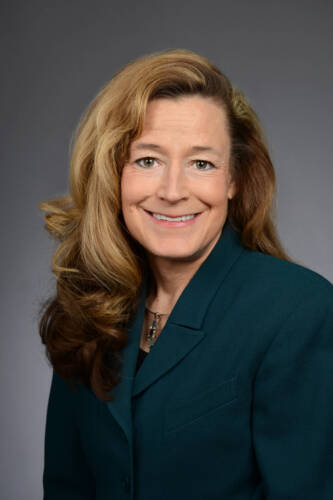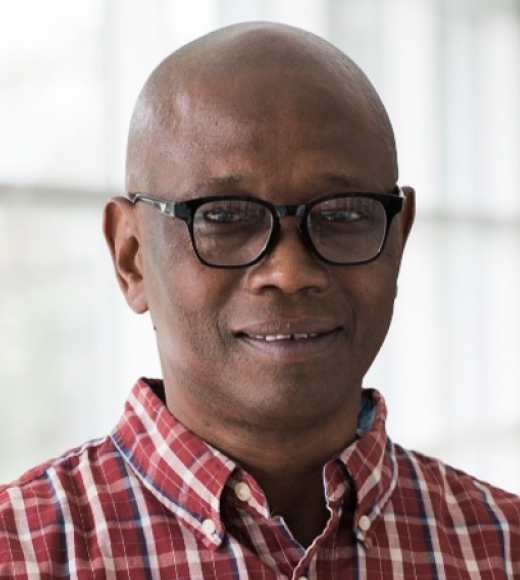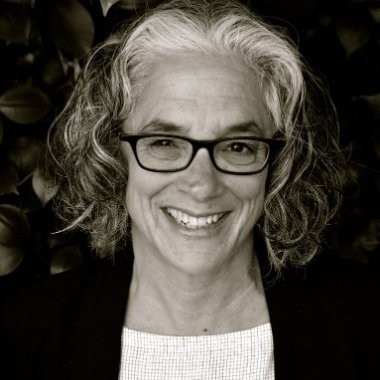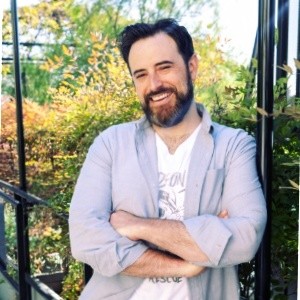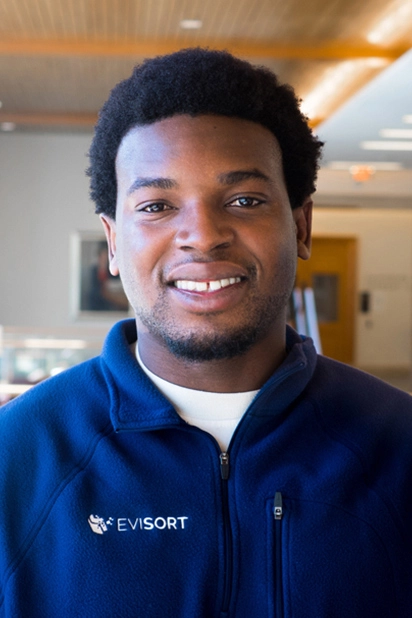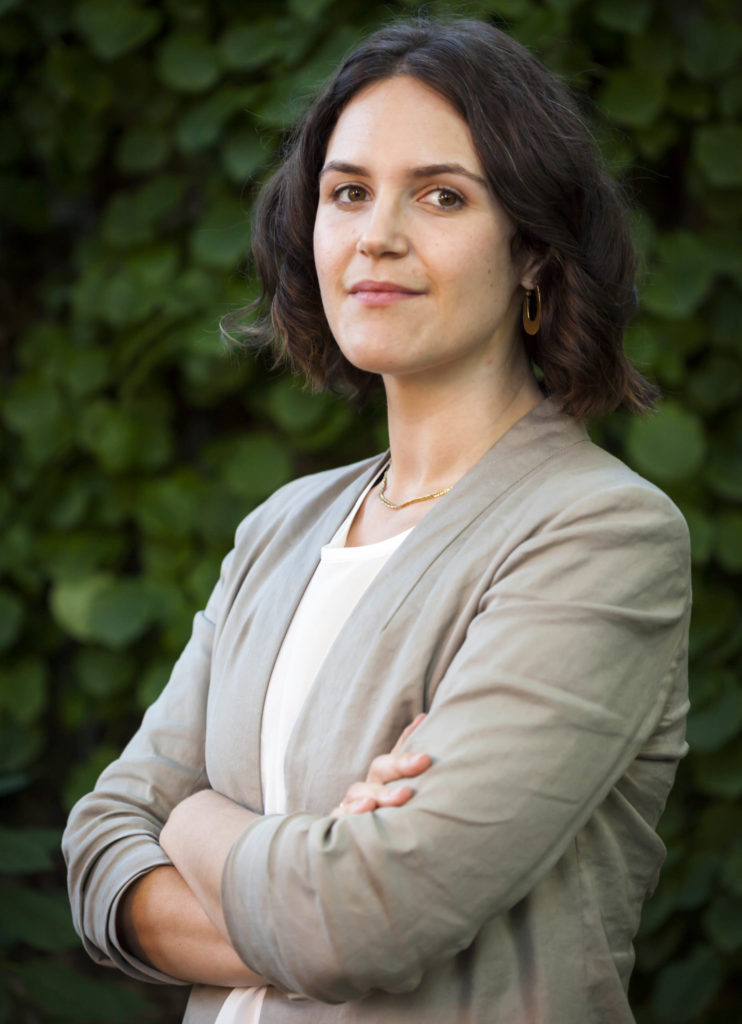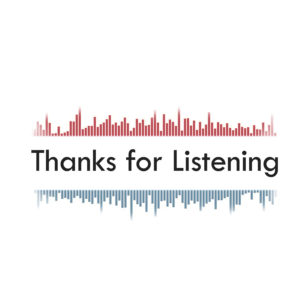
On July 6, 2016, Philando Castile was shot and killed by a police officer during a traffic stop in Falcon Heights, Minnesota. In the weeks and months that followed, systemic issues that had been present below the surface in Falcon Heights and surrounding cities erupted into the open. The atmosphere was one of rage, pain, resentment, and distrust. In some ways, this was an unlikely setting for constructive dialogue that had any chance of rebuilding the community.
And yet, that is the story that we hear in Episode 3 of Thanks for Listening. We meet John Thompson, Philando’s close friend, who talks about his own activism after the shooting, and what happened when he became involved in a series of facilitated conversations that brought together citizens, activists, city leaders, and police officers. We also hear from Sharon Press, who pulls back the curtain on these conversations and explains how she, and several colleagues, went about the hard work of organizing them in order to create opportunities for healing. Almost three years to the day after Philando was shot, John and Sharon reflect on their personal journeys, their unexpected friendship with one another, and how their communities have changed.
![]()
Thanks for Listening is a podcast tracking efforts to bridge the political divide in the U.S. through dialogue and collaborative processes and spotlighting the important and often courageous work of individuals and organizations who are helping citizens engage with one another on challenging topics. Episodes will dive deep into such issues as: managing difficult family dynamics and relationships affected by partisan differences; bridging the divides in Congress, the media, and in our social media spaces; training youth to move through conflict and toward civic responsibility; embracing dialogue in the face of extremism; engaging with others on highly emotional issues; and on working to restore divided communities. We hope that through the everyday examples of ordinary and extraordinary people all over the country, listeners will find optimism that we can—and are—moving beyond partisan divides, as well as inspiration to become part of the solution. This podcast is made possible with a grant from the American Arbitration Association International Centre for Dispute Resolution Foundation.
Hosts
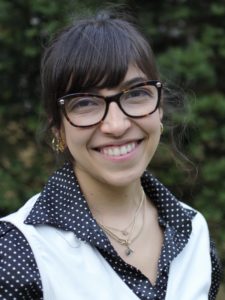
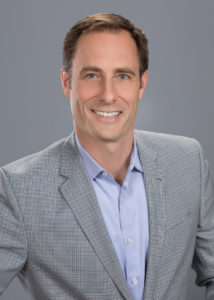
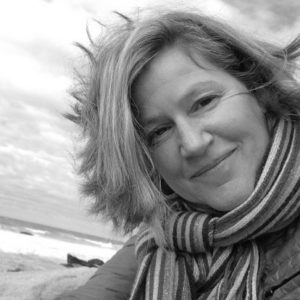
Sara del Nido Budish Neil McGaraghan Kate Ellis
Host Host Producer
Resources
Fight for Justice LLC was founded by John Thompson with the vision of educating and inspiring people to end racial injustice.
Community Conversation – A Case Study
Evaluation of the Falcon Heights Community Conversations Process
Guests
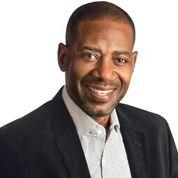 John Thompson is a community activist and inspirational speaker living and working in the Twin Cities in Minnesota. John has spoken at numerous public and civic events since the death of Philando Castile—from protests and demonstrations to City Council meetings to the Minnesota State Legislature. John advocated for the removal of police officers from the Police-Civilian Internal Affairs Review Commission in St. Paul, an initiative that was approved by the City Council in December 2016. John has worked tirelessly with numerous activist and social justice groups to build trust and better communications between the police and communities towards safer and more fair communities.
John Thompson is a community activist and inspirational speaker living and working in the Twin Cities in Minnesota. John has spoken at numerous public and civic events since the death of Philando Castile—from protests and demonstrations to City Council meetings to the Minnesota State Legislature. John advocated for the removal of police officers from the Police-Civilian Internal Affairs Review Commission in St. Paul, an initiative that was approved by the City Council in December 2016. John has worked tirelessly with numerous activist and social justice groups to build trust and better communications between the police and communities towards safer and more fair communities.
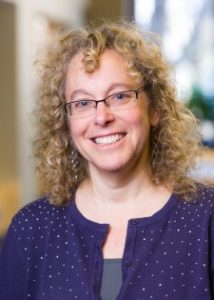
Sharon Press is Director of the Dispute Resolution Institute and Professor of Law at the Mitchell Hamline School of Law in St. Paul, MN. Additionally, Sharon directs the Jerusalem Study Abroad Program: Conflict Resolution from Religious Traditions, coaches the Mediation Representation Teams, and serves as the academic advisor to the students who are completing a Certificate in Conflict Resolution Theory and Practice. Press currently serves as Co-President of Community Mediation Minnesota, is a board member for Community Mediation and Restorative Services, and the Institute for the Study of Conflict Transformation. She also mediates regularly in Conciliation and Housing Courts.
Press is the recipient of numerous professional awards, including the Mary Parker Follett Award for Excellence and Innovation in Dispute Resolution presented by the Association for Conflict Resolution, and the CPR Institute for Dispute Resolution’s Special Award for Distinguished Contributions to the Field and Future of Dispute Resolution. Prior to joining Mitchell Hamline Law, Press served as director of the Florida Dispute Resolution Center where she was responsible for the ADR programs for the Florida state court system. She received her B.A. from The George Washington University School of Public and International Affairs and her J.D. from The George Washington University National Law Center.
Press worked with Mariah Levison and the Minnesota Office of Collaboration and Dispute Resolution and Professor Kathy Quick from University of Minnesota Humphrey School of Public Affairs to organize the community conversations in Falcon Heights discussed in this episode. As with this podcast, those conversations were made possible with a grant from the American Arbitration Association International Centre for Dispute Resolution Foundation.
Transcript
Sara [00:00:08] From the Harvard Negotiation and Mediation Clinical Program, I’m Sara del Nido Budish.
Neil [00:00:13] And I’m Neil McGaraghan and this is “Thanks for Listening,” a podcast about bridging the political divide in America. In this episode we explore the challenge of bridging the divide in the community torn apart by a police shooting that left an innocent black man dead. And, a warning to listeners, we will play an audio clip of that encounter that is graphic and some may find disturbing.
Sara [00:00:30] Our guests today tell a compelling personal story of how dialogue and community engagement can empower people not only to bridge deep chasms between them, but also to hold space for those times when they may still not see eye to eye and to work together for real, healing change. The story tracks one man’s evolution from self-described activist whose sole goal was to disrupt and shut things down to a true believer in the power of dialogue to spark change.
Neil [00:00:56] That man’s name is John Thompson and John was an employee of the St. Paul Public Schools. And where our interview picks up, John describes a conversation he was having with his friend Philando Castile. John and Philando were discussing Alton Sterling, a 37-year-old black man who had been shot by the police and killed in Baton Rouge that very same day. John joined us via Zoom to tell us his story.
John Thompson [00:01:18] I saw Philando on the 6th, 6th, no the 5th of July. The 5th of July, 2016. And we talked about Alton Sterling. Alton Sterling was murdered. We was so numb about the Alton Sterling murder, I remember that. “Nothing’s gonna happen to that officer,” was what we talked about, like very fast. You know, I saw Philando and I remember his last words was, “Man I love everybody,” and I took that for granted. Like I was like, “Yeah, whatever.”
Sara [00:01:48] The very next evening, July 6th 2016, Philando was pulled over by a police officer named Jeronimo Yanez. They were in Falcon Heights, Minnesota, a suburb of St. Paul.
Audio of shooting of Philando Castile [00:01:59] “I have to tell you I do have a firearm on me.” “Don’t reach for it then. Don’t pull it out. Don’t pull it out.” (Sounds of shots and screaming).
Sara [00:02:16] Philando had been driving with his girlfriend, Diamond Reynolds, and Diamond’s four-year-old daughter. As Philando bled to death, Diamond started streaming a video of the fatal encounter on Facebook live. John didn’t see that video right away.
John [00:02:28] I woke up in the morning, as I normally do. Probably about 5:30 a.m. And Fox News was on. And “another police involved shooting” was across the screen. And then they said “Philando Castile,” and I screamed from the top of my lungs. I woke up everybody in my house. I woke… I was like, “They killed Phil. Oh my God.” Like, I remember that. And everybody was like, “Who the heck is Phil?” in my house. I’m like, “Oh my God, they killed Phil!” Um, I didn’t go to work that day. I didn’t go to work that day. I wound up going in later that afternoon. I can remember that. I wound up going in later that afternoon because I didn’t want to leave my boss hanging for the whole day. So I went in later that afternoon. And I got the work van and I was headed to a couple of schools and I passed the Governor’s mansion and there were thousands of people outside of the Governor’s mansion. And what they were saying was being broadcast, live, in my van on the radio. And I’m thinking, “Wow!” But what I’m hearing is also the media, the media is, ah, portraying Philando in a negative light. You know he had marijuana in the car. He was endangering the life of the kid in the back seat. And I’m thinking, man that’s not the Philando I just spoke to. You know the way he was being portrayed. So, fast forward, that’s what really brought me out into speaking out about the friend I knew. Like I wanted people to know my friend loved to play chess. I wanted people to know Philando loved to play the X Box 360. He’s like a normal guy, you know. Don’t victimize Philando here because he did nothing wrong. Everything he did was right. I wanted people to know Philando had a college degree. I mean he graduated, you know. Also, I wanted people to know Philando was pulled over on this stretch of Larpenteur almost 50-something times. If I’m not mistaken, almost 60-something times. On the same stretch of Larpenteur. So something was bound to happen.
Neil [00:04:29] John started speaking out at protests and rallies from the State House to the Governor’s mansion. Sometimes he would purposely wear his St. Paul Public Schools uniform.
John [00:04:38] Because I wanted them to see that had Philando had on the St. Paul Public Schools uniform he’d probably living still today. Because of the clothes he had on and because of the braids he had in his hair and because of . . . . he was profiled and murdered. And I wanted people to understand that I purposely came here with this work uniform on so you could see me, I’m a working man. I’m a machinist. I did everything right, just like Philando. I have a wide-set nose just like Philando. But I’m also a father. I’m somebody’s brother. I’m somebody’s uncle. And I don’t have to be dressed in a St. Paul Public uniform, Public Schools uniform, to be respected and be treated . . . . I’m treated a little different when people know that I’m a machinist and I’m in my machinist uniform, as opposed to being in a Nike jogging suit with a Nike cap on something like that. You know some of the clothes that we wear, you know, put us right into, you know, that “everybody’s a criminal in your community.” Cool. So I purposely went to the microphone and I said that. Actually I did that twice, the second time I did that I put on the, the smock that Philando wore. I put on the St. Paul Public Schools smock. And I put it on to tell people that he’d had this on when he was pulled over he probably would have been treated a little different, but because he didn’t have it on he fit right in with the pool of people who are you know “everybody’s a criminal in the community” and “everybody that looks like this should be treated like this.” He fit it. And I’ve tried, I tried to do that and it was well received. Like people understood what I was saying. Like honestly he would still be here today.
Sara [00:06:28] What are some of the other things that you did that summer and maybe beyond to speak out about this? How else did you get involved as an activist?
John [00:06:38] I showed up to everything, like anything and everything that I could shut down. Everything considered a check in the box in a meeting, I was there to make sure they didn’t check that box. I was there to make sure that the body that was performing what I called an act . . . . to make sure that they knew that I wasn’t going to leave. I was going to keep applying pressure. I was going to put my foot on their neck and apply pressure throughout the state, not just in the city of St. Paul. Like I would show up to the Falcon Heights City Council meetings. I would show up to St. Anthony City Council meetings. I would show up to state capitals. I would show up to the Governor’s house. I would show up to the Mayor’s home.
Sara [00:07:22] To give a sense of what this was like. We found some footage of John and others at a subcommittee meeting at the Minnesota State House.
[00:07:36] [00:07:36(Audio of protesters chanting)
John [00:07:45] We shut down highways. My real shutdowns, die-ins in the middle of the street. I mean everything that you could possibly think of. To let people know that this is unacceptable here.
[00:07:57] (You don’t care about us. Shame on you.)
John [00:08:02] I wanted people know that I was angry. I’m very angry. And I wanted people to know that I have over twenty five hundred people that are very angry also. You know the numbers grew at any given time and I wanted them to know we weren’t going anywhere until they gave us a solution to this injustice. And at that point honestly we just wanted Officer Yanez to be tried. We wanted him to be charged. We wanted him to be charged with something.
Neil [00:08:32] As the protests continued, a law professor in nearby Minneapolis was paying very close attention. Sharon Press teaches at the Mitchell Hamline School of Law and she directs the school’s Dispute Resolution Institute. Sharon had received a grant from the American Arbitration Association’s ICDR Foundation, the same foundation that funds this podcast. They gave Sharon a grant to launch a project called Making Talk Work. The goal of the project is to build healthier, stronger communities through dialogue. Overwhelmed by the upheaval in Falcon Heights, the mayor of the town, Peter Lindstrom, reached out to Sharon and other community organizers for help. Sharon joined our conversation with John Thompson via Zoom.
Sharon Press [00:09:09] So the group of us got together to talk through what might this city do to move forward and ultimately what was decided was that there would be two parallel things that would happen. There would be a task force that the city would create. They would take applications from the residents of Falcon Heights, try to get as many diverse opinions at the table to actually look at the data and review and make recommendations to the City Council about the path forward. And this data point was important because one of the things that came out, as John said, Philando had been pulled over 50, 60 times on this one stretch—and it wasn’t just Philando Castile. It was everyone who was African-American. It was a dangerous part to just be you know that old saying “Driving while black.” That was a problem in that particular area. But the City Council, the white residents of Falcon Heights, they didn’t know that. And they didn’t have any data to support that this was going on even though the whole African-American community knew, “Oh that’s not a place you want to be driving.” So that was a big piece of the task force. Parallel to that, we decided that we would run a series of Community Conversations to help the community transition from feeling angry and helpless and hopeless to interacting with the task force and ultimately coming through the other end with a positive direction of where to go.
Sara [00:11:09] And how did you think about what those Community Conversations might look like?
Sharon [00:11:13] Ultimately, we settled on five different Community Conversations that took people through first looking at personal and community values, then looking at how Falcon Heights lives out those particular community values both in terms of activities, policies and policing, policies and practices. And then the third one. At that point the task force had developed preliminary recommendations around policing, so they brought that to the Community Conversation and there were some conversations and feedback that went back to the task force from the community. The fourth one was “what’s needed for transformational change and personal commitments?” And then the last one was to be this commemoration of the work accomplished and developments of next steps. The fifth one ended up having a bit of a challenge that got thrown into the mix because the last one was supposed to be June 19. And on June 16, so three days before the last one, Officer Yanez who was ultimately charged and brought up on criminal charges, was acquitted. And needless to say it reactivated the community. There was great disappointment and an upset around that. And so we needed to sort of manage and deal with all of the emotions that surfaced with that before people were really in a place to want to close things down.
Sara [00:12:58] So there was this incredibly disruptive development just days before the final scheduled conversation. The story of how that fifth conversation went could probably be an episode in and of itself. What we’re especially interested in is a moment long before that when John was wrestling with whether to attend any of the conversations.
John [00:13:15] When they decided to put together the task force, there was a lot of activists that were upset because they said the people of Falcon Heights aren’t the people who are being affected by these routine traffic stops, these DWB stops we’ll call them.
Neil [00:13:34] Driving while black.
John [00:13:35] Right. In Falcon Heights the residents weren’t the ones that were being affected and so we felt left out. Like you’re just gonna get the same white people here in Falcon Heights, who are actually watching us being pulled over, to be a part of this task force. And Melanie Leehy was one of the people working with the city of Falcon Heights.
Neil [00:13:59] Melanie Leehy was at that time the executive director of Community Renewal for the Greater Twin Cities and also one of the co-chairs of the task force on policing and inclusion that Sharon described.
John [00:14:09] She would always call me, especially after my mom died, she’d always call and check on me. And some of the activists would always tell me, “Man stop talking to her she’s one of them.” And one day I was at the City Council meeting and Melanie pulled me to the side and said, “I need to talk to you.” And sure enough one of the activists grabbed me said, “Stop talking to her. She’s one of… she’s hired to silence the crowd.” And so she pulled me over to the side and said, “No I just want to pray with you.” She said, “I want to pray with you. You lost a lot this year and I need to pray with you.” That’s what she said. “God told me to make sure that I grabbed your hands and prayed with you today, and I’m not leaving until I pray with you.” And so she took me over in a corner and she prayed with me. I said, “People that have an agenda don’t pray with you. They don’t pull you to the side.” You know, I felt the connection, like my mom was grabbing my hands.
Sara [00:15:10] Wow.
John [00:15:10] Through Melanie she was speaking to me, through Melanie. And actually I still feel that. You know sometimes it’s scary when I see…. [Laughs] sometimes its scary, but that was like someone who I had built a relationship with and I wasn’t going to let the activist community take…. Like, that was something special for me. But fast forward to the task force meetings like that was still like a “No I’m not going to that because we’re not involved.” In the Community Conversations… we weren’t involved in the task force so now you’re inviting us to Falcon Heights? So like, you guys already know what we’re going through why are you going to invite us to a church to spill out? We just want you to stop doing it to us. We know you know. That was our message. And I stuck with it. But Melanie would call and I’d say, “Mel I’m not going.” And she’d call for the next one and I’d say, “Melanie I’m not going. It’s just a check in a box.” Melanie would call. And then, Philando’s mom called me. And she said, “John you need to go to this meeting. There’s two left. I’ve been to one.” [Chuckles] she said, “She told me to tell you to get up and go to the meeting.” And so I went to the meeting. It was one of the last two Community Conversations. So I wounded up sitting with the mayor of the city of Falcon Heights, Peter Lindstrom. I sat at the table with those guys. And the mayor starts talking and then he starts crying. And he said “I don’t know what the F to do. I’ve never had anybody murdered in my backyard.” He said, “I became the mayor to make a difference in the community. I became the mayor because I saw things that I wanted to see change.” And he was actually like… not scared for the first time. It’s like we scared him a lot, so he kind of shelled up when we would show up to the City Council meetings. But now I’m sitting across the table from this guy who’s not the mayor. He’s like somebody’s dad. He’s someone who I could see confused buying a rotisserie chicken. [Chuckles]. Like he’s not the manager of this city. He’s actually like telling me, “John, I have no idea what to do.” But he said, “I’m here with the community because I have things I want to see done. You have things you want to see done. And we’re going to do it together.” And when he said that I’m like, “Okay….” It was like an eye-opener. I’ve never seen this. Just keep in mind I’ve never been in a situation where I would have to be this close to a mayor ever in my life. But, I was just yelling at the mayor two days ago and I said, “My friend’s blood is on your hands.” And we were standing at his house a few days before that. Like, we were in his grass. All of us. We didn’t care about his lawn. And then I actually saw how wrong I was. Like, “He shouldn’t be treated like this” is what I was thinking. Like, he had nothing to do with it. And as a matter of fact, now I’m thinking Philando was murdered by a St. Anthony police officer who actually started trailing Philando in St. Anthony. He just happened to get pulled over in Falcon Heights. And all of us are yelling at the mayor of Falcon Heights. Like, I honestly saw the mayor doing exactly what he had been saying he was going to do at the City Council meetings. So it was an instant buy-in it for me after that. You know?
Neil [00:18:59] Yeah. I mean, Sharon maybe for you I assume that’s something that you strive for in a setting like this. That’s the idea of the conversations. And I wonder, how did you get there? How did you get to the point where you were able to have people in the same room? You know John just told his experience was one way. That he got brought in and took a personal call, several personal calls, from people associated with the process and then from Philando’s mom. But, what was your challenge, Sharon, of getting people in the room together? And then, secondly, once people are in the room what do you do to help them have those kind of transformative moments where they see each other as human beings and not as enemies or soundbites?
Sharon [00:19:45] It wasn’t a challenge to get people because there were lots of people in Falcon Heights who were hungry for a conversation and were desperate to try to figure out what could be done. But as John alluded to Falcon Heights is primarily a very Caucasian city. And so the challenge was really getting a diverse group of people there because that’s ultimately what everyone wanted. They didn’t want to just have an echo chamber conversation they wanted to talk to people. And so early on a decision was made that when we said “Community Conversations” it would not be exclusive to Falcon Heights. And so we advertised broadly and Melanie was on a mission to bring in John and to bring in as many people that she had had contact with during the protest at the City Council meetings. So there was a real effort made. I want to mention one other person that John mentioned and that’s Associate Professor Raj Sethuraju who is an Associate Professor at Metropolitan State and he is in the School of Law Enforcement and Criminal Justice and he is well known in the African-American communities. He’s and an activist himself. And he’s also very involved in restorative practices and circle processes. And so we thought it was important for our planning committee for him to be included as well. Both for his expertise and for his access. Ultimately, I mean there was a little bit of tension between how to run the meetings because we decided on these five meetings. We wanted to have some part of each meeting that was everyone all together. And so we opted to have both the very beginning of each meeting and the very end of each meeting to be everyone who attended together but the middle portion was going to be in groups of about eight in a circle with two facilitators who were volunteers from the community at large.
Neil [00:22:08] So one of the things you had just said, and I don’t want to divert you, but you mentioned facilitators, two per group. Were these people that were volunteers and you gave them some training to help them understand sort of the role that they were to play and how to serve as facilitators?
Sharon [00:22:25] Right. So the people that we utilized came from two different lists: one were volunteers with the Community Dispute Resolution Program and then another group that had done some facilitation training. So they all had a baseline of facilitation training. We then did another training for everybody who was going to volunteer, and then at the start of each session the facilitators showed up about a half hour in advance and we would walk them through the agenda for the evening or questions that they were each to ask in the circle, how to organize their circle, and just do a little refresher and pair them up because they didn’t necessarily know who they would be working with. One person in each of the circles took the lead on facilitating and the second person recorded notes because we were trying to capture what were the responses so that we could both frame up the next session and also when we came back together we tried to do some synthesizing of what had come out of the conversation that night.
Sara [00:23:37] Sharon can you give us a sense of what you learned. What came out of these conversations? And maybe in a moment we’ll get to the sort of substantive level. I know you did an evaluation of the sessions. What did you learn from the feedback that you got about these conversations?
Sharon [00:23:56] So one of the things that was most encouraging about it was that people changed in terms of sort of their emotional state of when they started the conversations and how they left. And that was something that we were really hoping for. So specifically participants reported feeling more optimistic and trusting and less cynical, sad, and angry after having participated in their conversations. There also was this mixed finding of being both more energized and also more fatigued after the conversations, and I sort of understand that. I think that there was a sense of people feeling a bit more connected and better about directions and wanting to move forward, and also feeling somewhat emotionally drained because it was a challenging period of time for everyone.
Sara [00:24:59] I want to round out our time together with your reflections John. You know, you had at least a moment in these conversations that were, it sounds like was incredibly powerful for you on a personal level in terms of a shift that you felt. Give us a sense of you know after the community conversations what changed or what change did you feel in your community. And also, for you personally how was this experience kind of a launching point to the work that you’re doing now?
John [00:25:31] After Philando was murdered, I wanted stuff to happen right now. Like, I want you to do this now. And I can vividly remember Melanie said, “John you can’t walk into buildings.” She said, “You can’t grab Monopoly, play Monopoly, and just pour the pieces out on the table. You need to know how to play Monopoly. So I’m going to need you to read the instructions,” or something like that. No she said, “You need to read the instructions so I’m going to show you how to play Monopoly,” that’s what she said. And um, like I remember walking into one of the meetings, one of the last meetings, and it was like everybody’s, “John, John what is it that you want on this recommendation board?” Like, “I want you to get rid of the St. Anthony Police Department.” And then it was like everybody in the room wanted to get rid of the St. Anthony Police Department. And then like a few weeks later they were RFPs from the city. So my eyes were wide open like yeah they’re actually doing exactly what the community wants and everything that I had been saying, how we can do it together, is starting to like show its face. And so then I started realizing that this is not the only problem. Like there’s problems in legislation, there’s problems in the decisions that City Council makes. There’s problems in our school board. You know there’s problems that… these problems that created the situation for Philando. There was an anti-protest bill and I can remember that there was an anti-protest bill here by Nick Zerwas, who’s a legislator here. Republican legislator Nick Zerwas. And I can remember going to the hearing and testifying against this bill. But I’m yelling at Nick Zerwas and telling him, “This bill is directly aimed at protesters and you’re this racist guy from Elk River.” And I’m yelling at Nick Zerwas. And just fast forward to now, Nick Zerwas is a co-author on my bill. [Chuckles]
Sara [00:27:48] That’s a big change.
Neil [00:27:50] How did that shift happen?
John [00:27:53] I walked in and I asked Nick to co-author my bill and he says, “John you can’t come in here, two years ago, and yell at me and call me this and then two years later you ask me to co-author your bill.” And then Nick says to me, “But John had you not came to my office and came to my hearing yelling at me and… you know then we wouldn’t even be having this conversation right now.” So he said, “To hell with the anti-protest bill. John I agree. We need this bill right here passed. Its going to help a lot of youth here. You know, and let’s work on what we can agree upon.” That’s probably the shift because I was angry, right? Then now its like I’m making a difference. I’ll say that again man I’m making a difference. I was angry, but I would always go back. And that’s just because of Peter Lindstrom and what I experienced with the task force. Like okay some of these legislators do need to have their bubble bursted. Some of these City Council—I mean because they go to work and it’s like a routine. They sign papers. And you know at some point you got to realize we need to be proactive instead of reactive all the time. And so a lot of times I would go in and yell at people about stuff that didn’t make sense. You know if it didn’t make sense for my community, yeah I’ll probably yell at you. We have a press conference, they say I’m the angry black man you know. But I’m trying to prevent not only another Philando, but I’m trying to prevent a lot of systematic stuff that has been happening since my father was my age you know. And I guess that’s the transition that I got out of all of this these Community Conversations and the Falcon Heights task force because I knew nothing about this process. Its like still on the job training for me too. But its more… I don’t have to worry about showing up for police-involved shootings and showing up and shutting stuff down. Nah, I’m to the point now where I could just make a phone call to the same people who I used to yell at. So yell at the ones that need to be yelled at and then go back and tell them, “This is why I yelled at you.” And so, I guess that’s my “from activism to activated story.” I’mma stick with it.
Sara [00:30:20] And so what has changed it sounds like is just you’ve been doing a lot of the work around relationship building and laying the groundwork for connection. That really wasn’t there, at least wasn’t there in the same way before.
John [00:30:33] Yeah it was like, I think Sharon and those guys were putting together a soup. And I don’t like carrots. [Chuckles]
Sharon [00:30:44] [Laughs]
John [00:30:44] They started grating the carrots up and making them real fine so I didn’t know I was eating carrots. [Chuckles] I didn’t know I was eating carrots. And then sooner or later they’re like, “John surprise we had carrots in the salad. I mean in the soup.” And like, I really like carrots.
Sharon [00:31:03] In times of crisis relationships are everything. And that’s what’s going to make the difference. And so for me one of the most profound things that came out of the Community Conversations was the wonderful relationship with my good friend John Thompson who I did not know before any of this.
John [00:31:23] No I did not know Sharon. I don’t think there’s a chief in this state who doesn’t know who John Thompson is.
Sara [00:31:31] Right.
John [00:31:32] And I think that a lot of times they’re asking me to come and to talk and have this same conversation and how they work. You know when I go and I have these conversations, I actually say we did it together. Like honestly we had to buy in and it works. Like a lot of problems I have now I solve over a cup of coffee. [Chuckles] and I definitely know that its because I came to a lot of these “soup parties” I didn’t want to come to. You know and had I not, you probably wouldn’t have this John Thompson. Like I would think that shutting stuff down would get stuff done. I didn’t know how this stuff works. You know I’m glad because it has evolved into more than I would have ever… like I actually know my purpose in life. How about that. I can leave you with that. Like I actually know what my purpose in life is on this earth. And that is to bring these conversations and to have these conversations and to bring people together. Like I make people hug each other. You know like when I walk into a room I make people hug. But to have these conversations and to facilitate these type of… before something like a Philando happens in your community. That’s my purpose.
Neil [00:33:03] Well John, and Sharon too, I wish you both were here in the studio so that we could close with an actual hug.
Sara [00:33:08] Me too.
Neil [00:33:09] No I really do. And it’s a beautiful image to think of and to realize that there is something to be said for engaging with each other. There’s also something to be said for activism and shouting when it has its place. And it does. And there’s also a place for engagement. And it sounds like the work that you all did together, out of this terrible tragedy, has led to something that is incredibly valuable and positive and is something that could be a model for a lot of other communities. As you say John before the next Philando happens.
Sara [00:33:41] So thank you so very much for sharing with us and for this time.
Sharon [00:33:46] Yeah. Thanks so much for inviting us. It’s always great to talk about these things and share the news.
Neil [00:34:10] For John and for so many others direct action was necessary after Philando Castile’s death. The speeches at the Governor’s mansion. The rallies shutting down the City Council meetings. All of these protests shined a light on the critical long-simmering injustices that literally resulted in a man’s death. [00:34:25]Their [0.0s] activism brought the community face-to-face with deeply painful issues.
Sara [00:34:29] Sharon’s choice to organize spaces for the community to talk with one another in a structured way wasn’t an obvious one, and it certainly wasn’t easy. It took a lot of deliberate effort, a diverse planning team, and even after extending invitations to people like John there was no guarantee that a diverse mix of people would show up.
Neil [00:34:47] But John finally did show up and when he did for him the nature of the conflict between his activist community and city leaders completely changed. John realized that his view of Mayor Lindstrom had always been from behind a bullhorn. But, sitting next to him at the table during the community conversations, he saw something completely different. The vulnerability that the mayor showed in that moment also opened up something different in John. And it continues to affect the way he approaches problems today. For him dialogue was the beginning not the end.
Sara [00:35:17] In the weeks and months following that final Community Conversation Falcon Heights terminated its contract with the St. Anthony Police Department and instead negotiated a new contract with the Ramsey County Sheriff’s Office based on a set of expectations collaboratively developed in the community. In 2017 John founded an organization, Fight for Justice LLC, to support his community engagement outreach and his activism. Melanie Leehy, the co-chair of the task force who worked so hard to get John to come to the Community Conversations, is now on the City Council. The community is changing.
Neil [00:35:49] Even so, this isn’t necessarily a story that can be tied up with a bow. The task force and Community Conversations in Falcon Heights were ultimately reactive to a particular moment of crisis and that in turn led to the community dialogues. But is it possible to lay the groundwork for strong relationships and connections within a community without some precipitating event? Sharon and her colleagues had been working before Philando Castile was killed to try and drum up energy in various communities to engage in dialogue. They found it was difficult to get people involved. Can this work really be done proactively? That’s the question we’ll be examining on our next episode.
Sara [00:36:34] This podcast was made possible by a grant from the American Arbitration Association’s International Center for Dispute Resolution Foundation.
Neil [00:36:41] Thanks so much also to our editor Kate Ellis and to the folks at the Harvard Media Production Center where we do our recording. Theme music is made available to us courtesy of Blue Dot Sessions.
Sara [00:36:51] And we want to thank our colleague Tracy Blanchard for her indispensable help.
Neil [00:36:56] If you’d like to hear more about anything that we spoke about on today’s show please take a look at our website HNMCP.law.harvard.edu/podcast. And there you’ll find the transcript of today’s show and many other resources that relate to what we talked about.
Sara [00:37:11] And thanks for listening.
Neil [00:37:12] As always thanks for listening.

